English
IMC Weekendschool is a supplementary school for children (aged 10-14) from under-resourced neighbourhoods. Through a three-year course, professionals (volunteers) introduce students to a wide range of topics, including journalism, medicine, law, philosophy, the arts, astronomy and entrepreneurship. The curriculum includes training skills such as presentation, research, debate, collaboration, and conflict resolution. It is an education focused on character formation in interaction with society.

Civil society providing real-life education
The goals of the program are to provide students with the skills, knowledge and audacity that are needed to find a place in society that matches their capacities. The contacts created between passionate professionals and students bridge social inequalities and affect both parties. In an alumni program, guest teachers, sponsors and IMC Weekendschool alumni stay connected, and develop professional relationships.
In 1998, psychologist Heleen Terwijn founded IMC Weekendschool in Amsterdam in collaboration with trading company IMC (International Marketmakers Combination). Nowadays IMC Weekendschool has 10 branches in the bigger cities of the Netherlands as well as 39 schools in regular education across the country. In addition, IMC Weekendschool helped to set up sister schools working with the same concept in Hong Kong; Brussels, Belgium (five branches), Chiapas, Mexico and Kuala Lumpur, Malaysia.
Guest teachers
Guest teachers
In the Netherlands, around 8,000 volunteer guest-teachers participate each year.
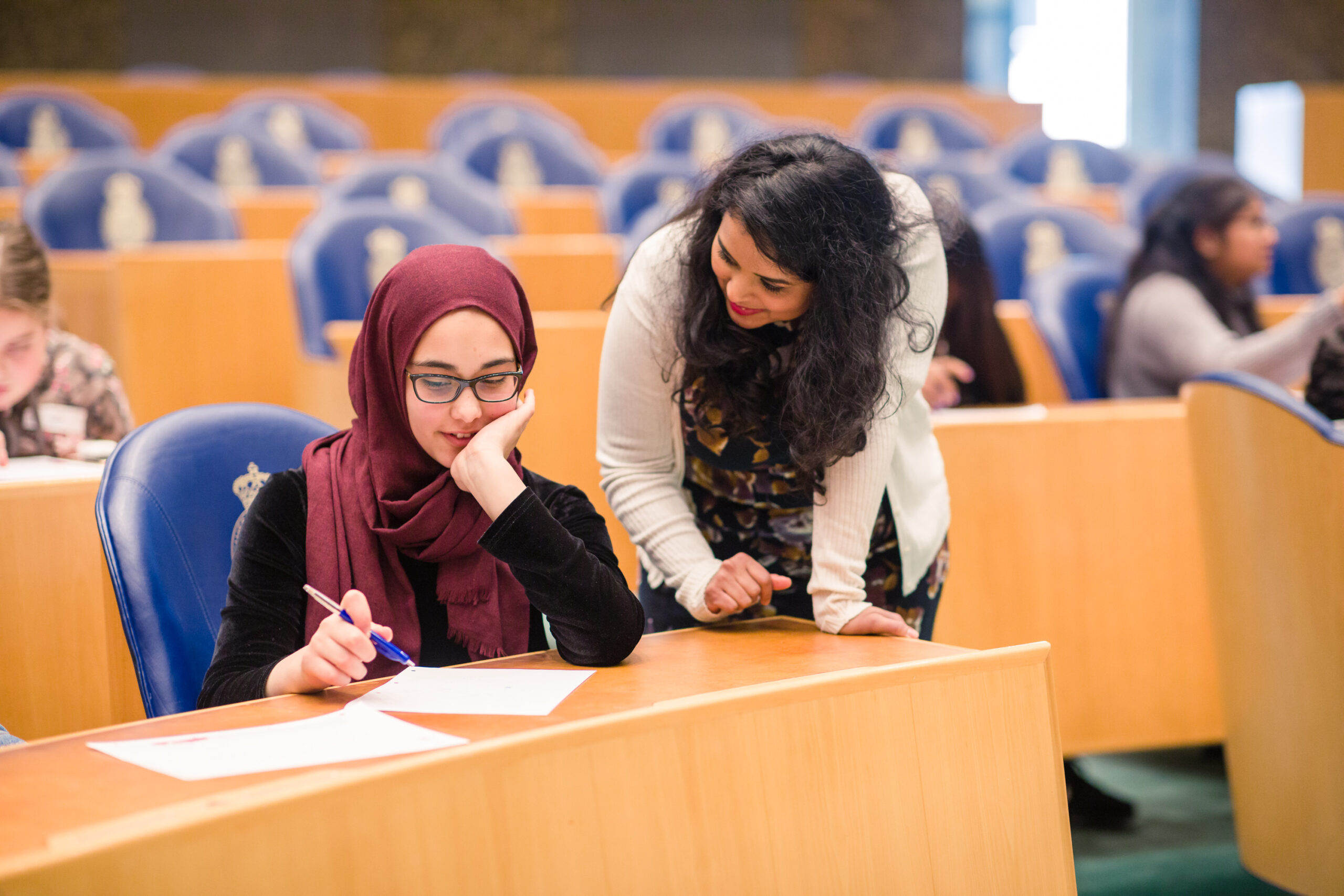
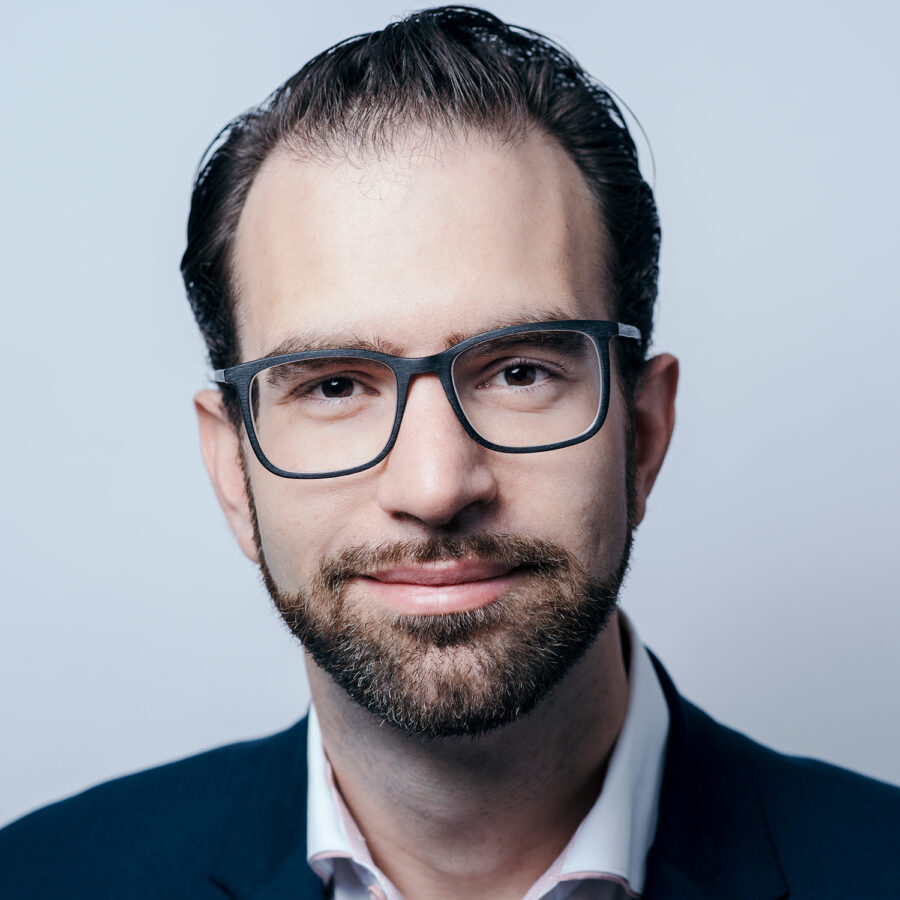
‘It goes both ways. It also gives you input and inspiration in a different way.’
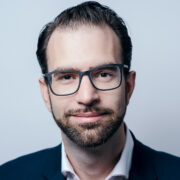
Funding
Funding
Over 400 companies and foundations finance the Dutch IMC Weekendschool organization. There are over 300 pro bono partners.
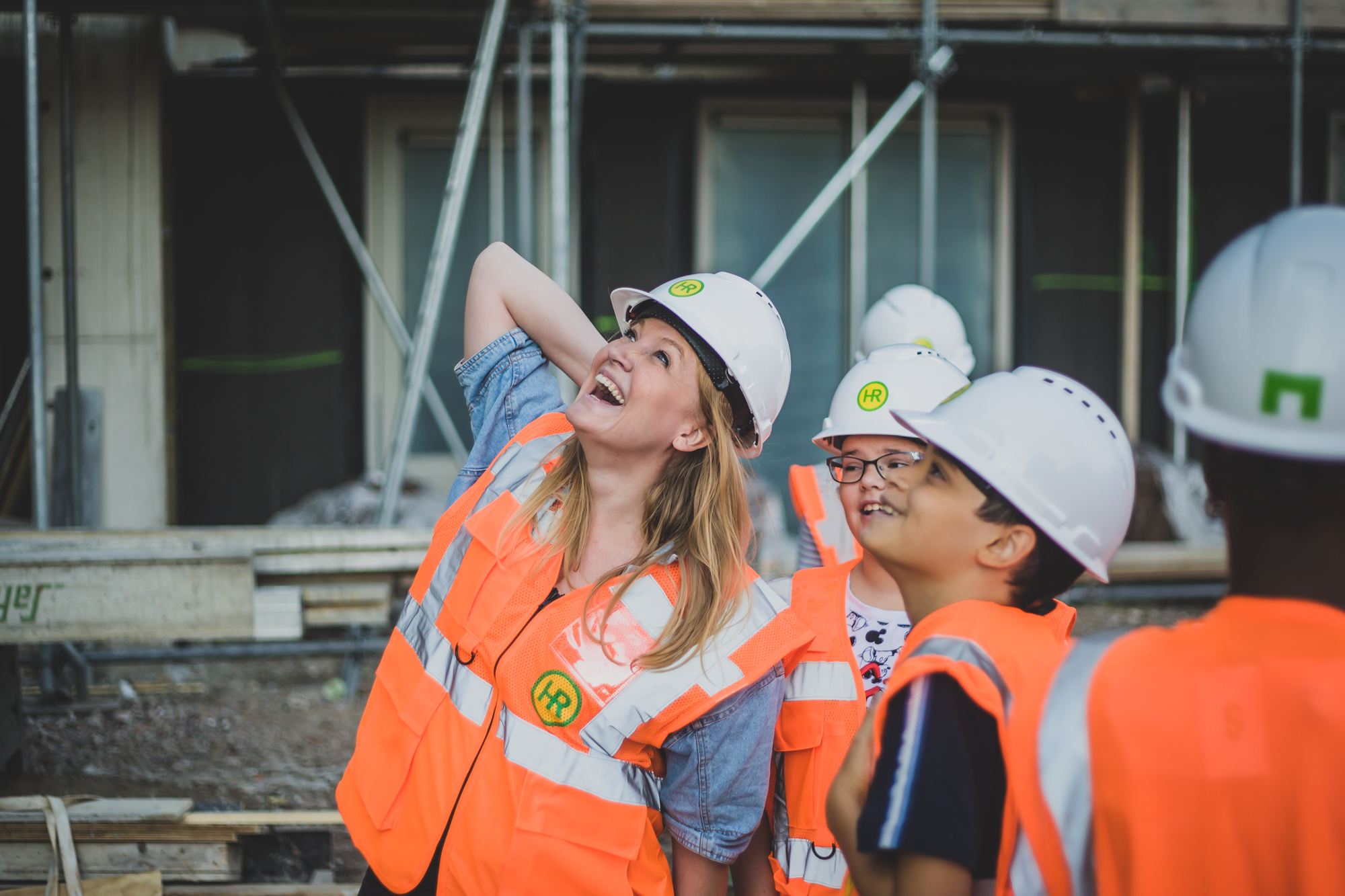
Alumni
Alumni
IMC Weekendschool alumni connect in a vibrant network (4,000 members in 2024). Among other activities for self-development, alumni teach the younger generations. Alumni embody the weekend school ideals, ‘learn from your elders;’ ‘pursue your talents,’ and ‘give back.’ Alumni organises a wide variety of activities, among which trainings, professional communities, and alumni boards.
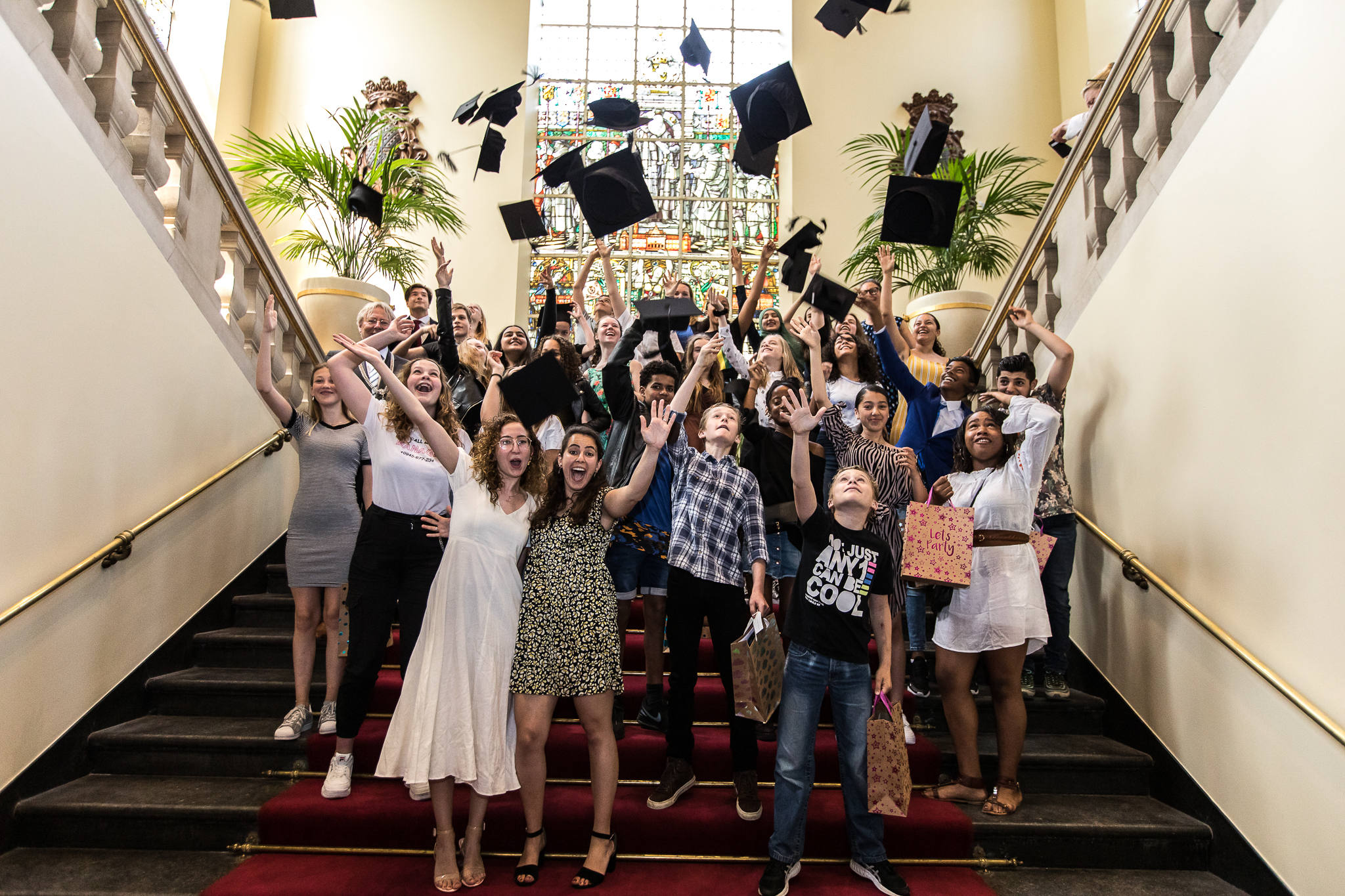
Research
Research
A research unit collaborates with universities to study impact factors. Data shows that IMC Weekendschool alumni have better professional prospects, are more confident, more motivated to persist in the school system, more motivated to develop their capacities, and better connected to society than control groups.
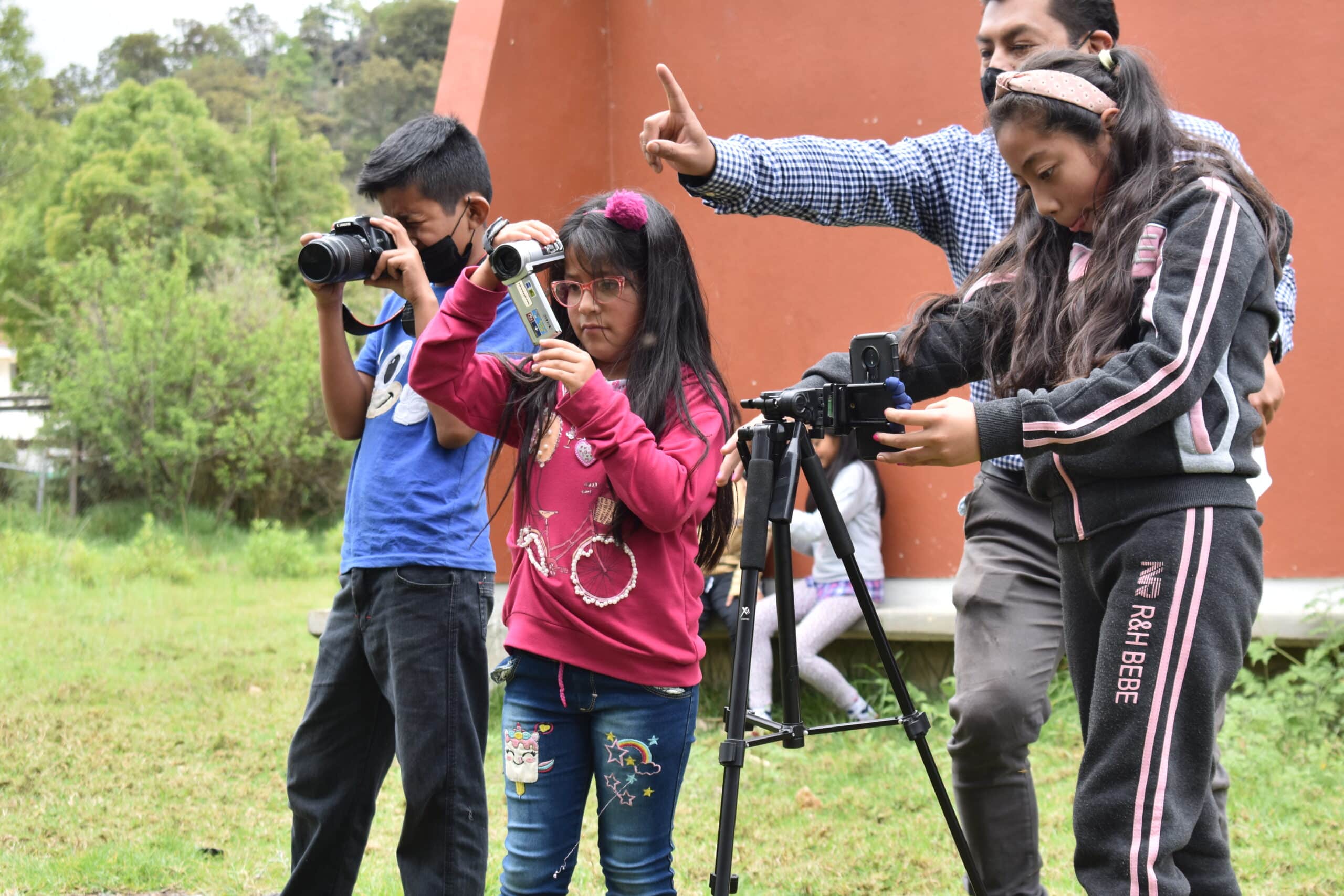
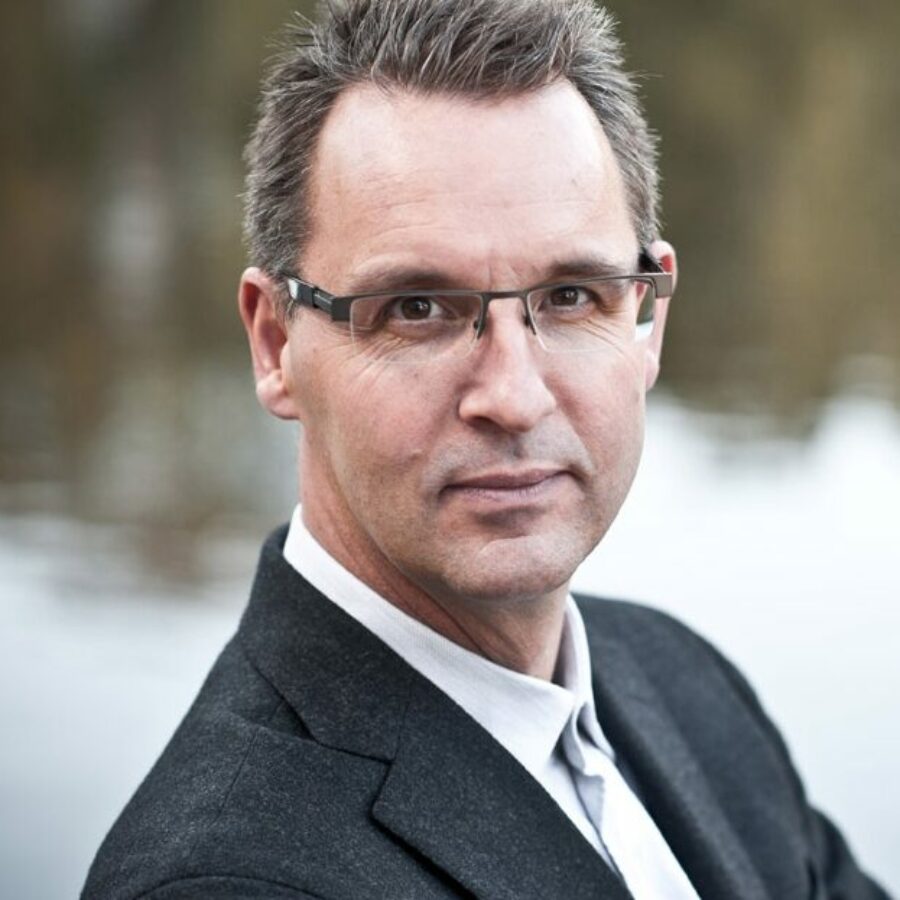
‘Disadvantages are turned into an advantage.’
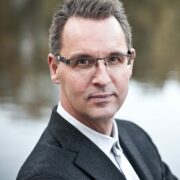
International recognition
International recognition
In 2009, IMC Weekendschool was awarded winner at the Marketplace of Ideas (United Nations Alliance of Civilizations). In 2010, IMC Weekendschool was a finalist for the WISE Awards (World Innovation Summit for Education). In 2016, IMC Weekendschool was finalist for the Brock International Prize in Education.
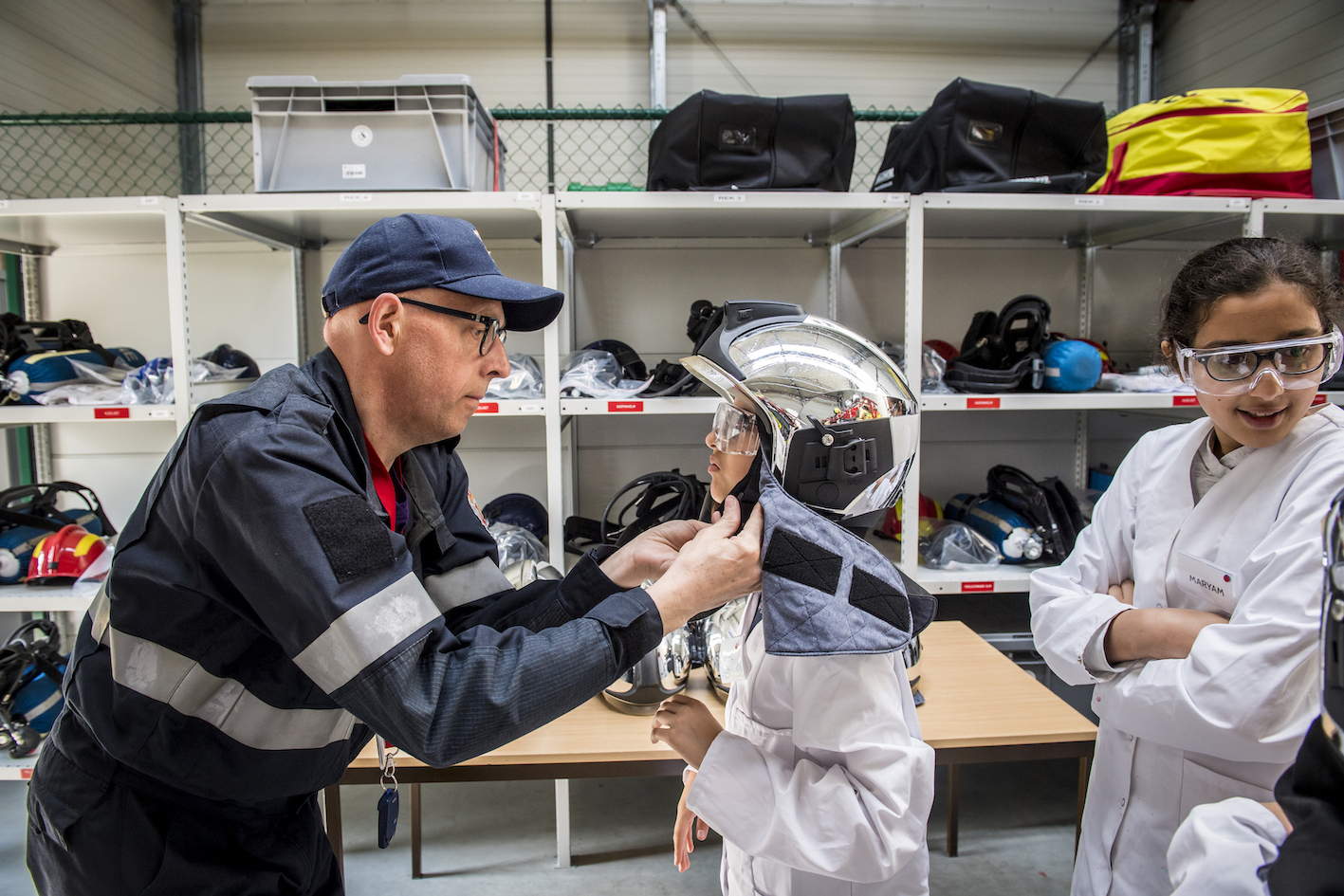
Building a Global Network
Building a Global Network
IMC Weekendschool supports social entrepreneurs who wish to set up weekend schools in their own countries. Social entrepreneurs receive intensive trainings at the IMC Weekendschools’ headquarters and subsequent on the ground and on-line support. Social entrepreneurs organise their own fundraising and set up their own independent organisations. As sister schools, we work with the same concept and ideals, share knowledge, align pr, and organise alumni exchanges. Together, we build a global network of weekend schools.
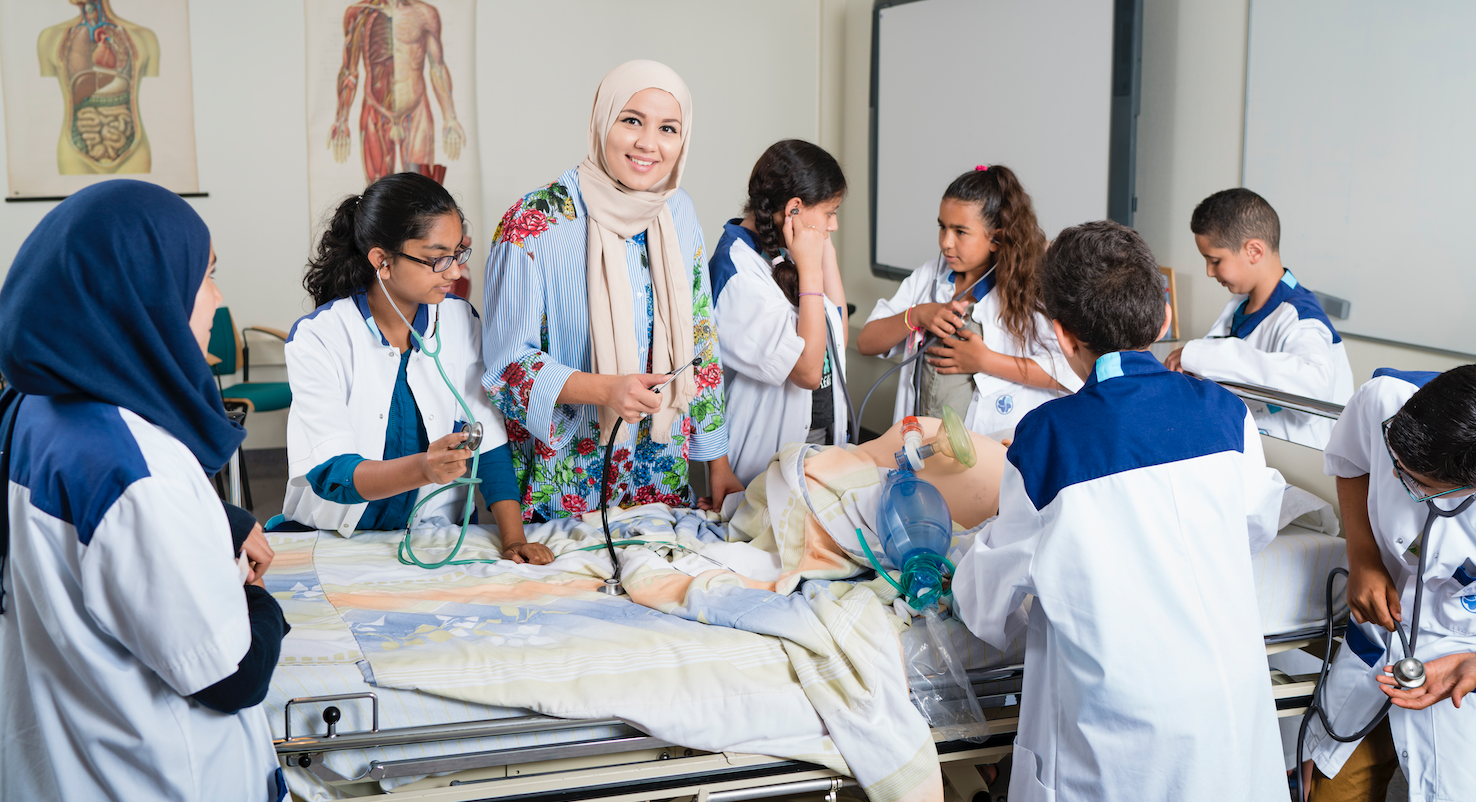
Magic Moments
Mission
Mission
IMC Weekendschool strives to prepare youth from all social classes and all school levels for wholeheartedly taking up a role in society. According to IMC Weekendschool, the ability to focus one’s motivation is the highest educational outcome. To that end, weekend school feeds youth’s natural curiosity with real-life subject matter, taught by passionate volunteer experts. In a three-year course, IMC Weekendschool enables youth to: experiment with interesting future perspectives; learn to know their capacities, and develop the audacity to pursue their interests.

Vision
Weekend school education builds upon the developmental fact that all youth are motivated to explore the world. At IMC Weekendschool, youth doesn’t learn ‘for later,’ but learns what later is. Through experimentation with social roles in real-life contexts, weekend school prepares students for the most significant step after their school careers: a motivated step into society.
IMC Weekendschool provides extracurricular education to youth in the receptive age of 10 to 14. Each weekend, volunteer professionals teach them their jobs. The three-year program comprises academic subjects (science, humanities), the arts, socially relevant subjects such as journalism, politics and entrepreneurship, and subjects of the students’ own choosing. All courses include skills trainings. Interaction between youth and guest teachers is the core of the curriculum. IMC Weekendschool is for youth from all school levels.
After the diploma, alumni enroll in an alumni program. This program provides a variety of follow-up activities, such as master classes, leadership trainings, job readiness trainings, coaching and tutoring. The alumni team organises specific activities for 18+ alumni, most notably trainings to become guest teachers for the younger generations. Weekend school alumni embody IMC Weekendschools’ ideals and are well informed, motivated, and involved citizens.
Academic studies
Academic studies
IMC Weekendschool continuously monitors its innovative education. Among our research partners are: University of Amsterdam, Amsterdam University of Applied Sciences, the Free University of Brussels, consultancies Kearney and Strategy&.
Our web page ‘Onderzoek’ (Research), shows an overview of studies into the Weekend School, with summaries in English.
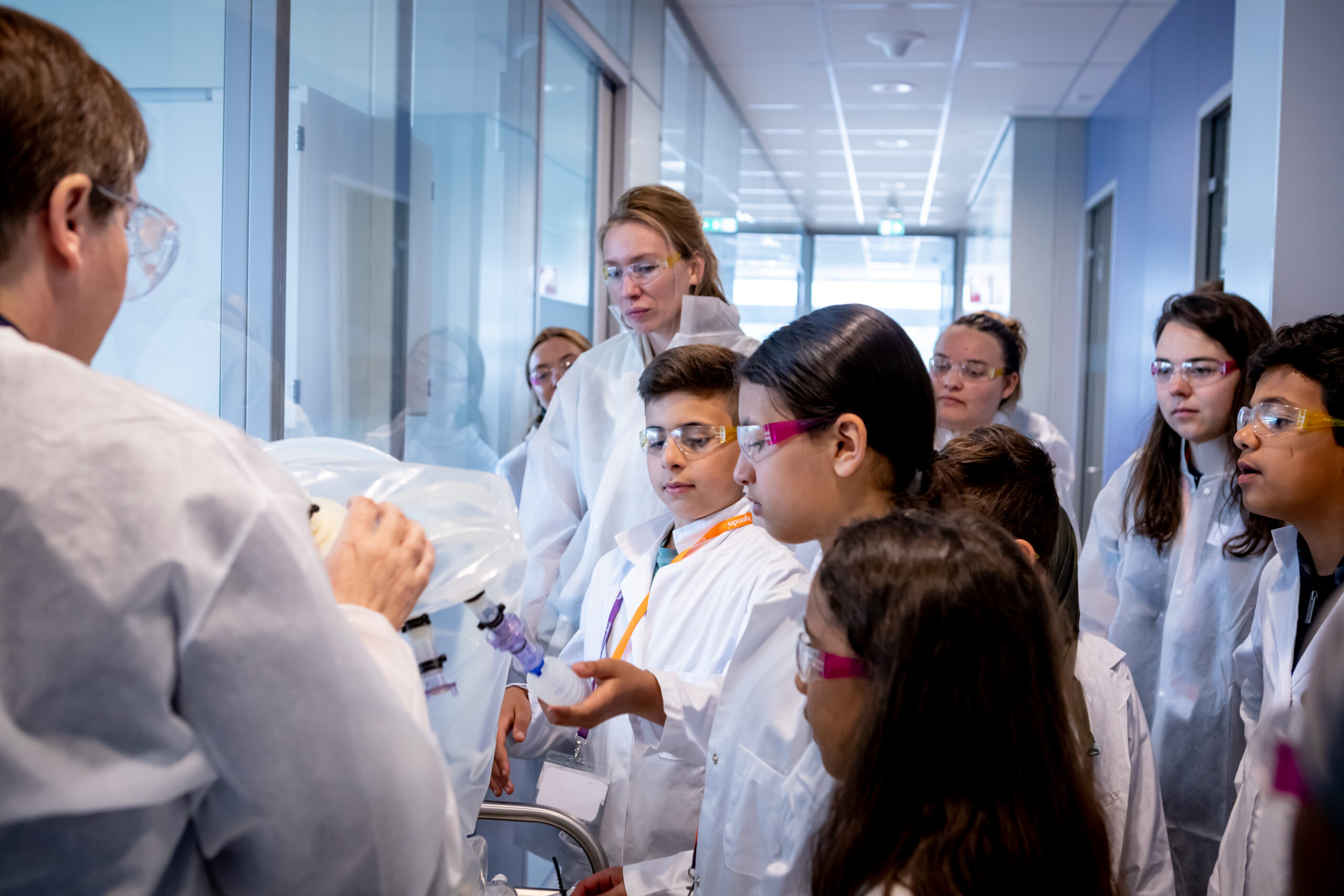
Discover your talents (EN subs)
We are happy to answer any questions that you may have.
Please contact:
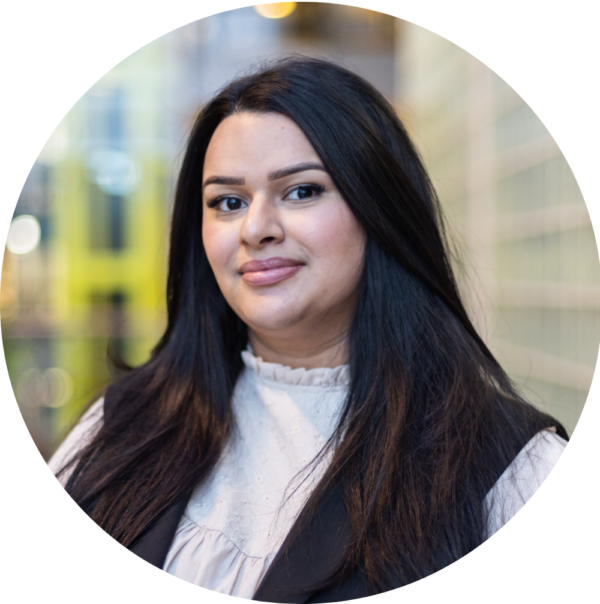
We are happy to answer any questions that you may have.
Please contact:
Maryam Rashid Officemanager 020 280 17 00